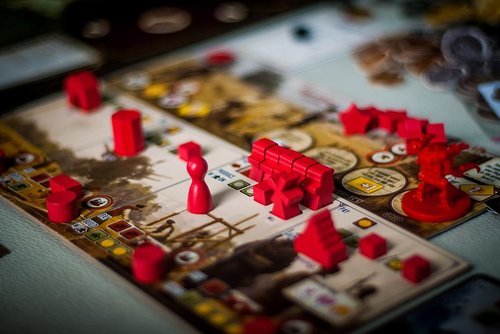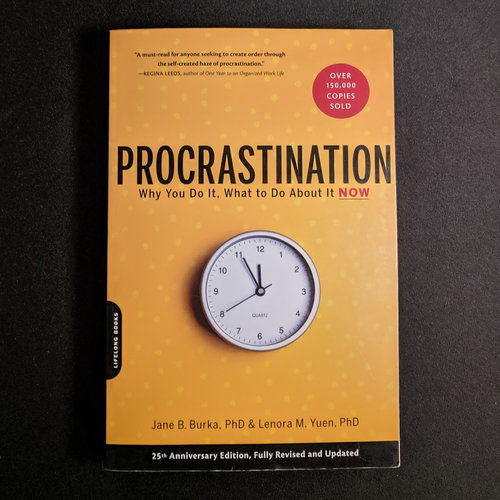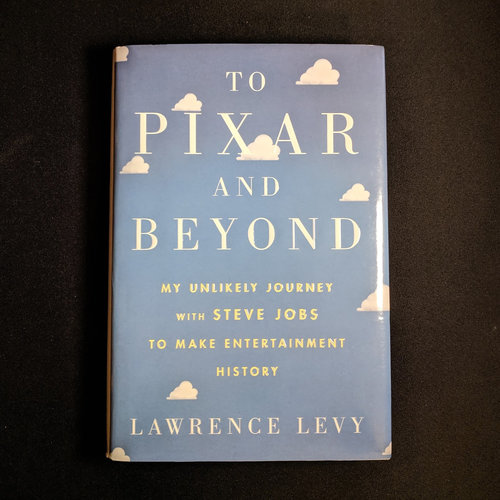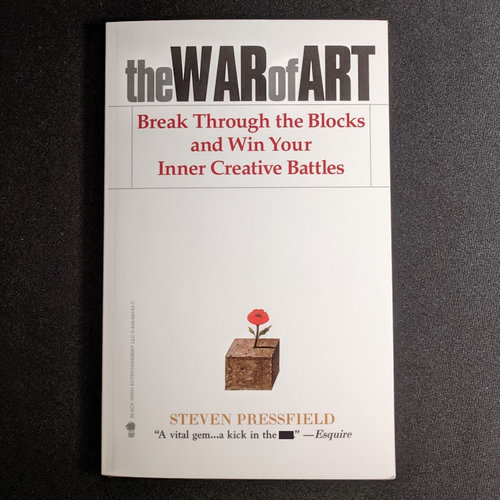Small Group 101 Bi-Weekly Curriculum

CGD 101 BI-WEEKLY CURRICULUM
Have you ever struggled to make significant progress working on games, or wondered “why haven’t I made something yet?” CGD 101 is designed to help small group members better understand why they want to make games, develop the disciplines to do so, understand more about the entertainment industry and how to market their games to succeed in it, and discover how to integrate their faith and work throughout their game development journey.

Lesson #1: Starting Well
Making games. It seems like it will be all fun and games, like working in Willy Wonka’s chocolate factory. This introductory session will begin your journey thinking critically about games and the industry.
- Why are you here?
- What do you want to get out of your project and this group?
- Set expectations
- Thinking critically about the games industry
- Begin with the End in mind
Key Principle
Begin with the end in mind. It brings clarity to decision making throughout the creation process.
Key Verse
Romans 7:19
For I do not do the good I want to do, but the evil I do not want to do – this I keep on doing.
Homework
Will be emailed to small group members before the first meeting.

Lesson #2: Faith & Work – A
Christian Game Developer. What does that really mean? Whether the person is trying to just make an excellent FPS or a narrative game based on a biblical story, we are all wrestling with how do we integrate our faith into our work. This lesson seeks to answer some of the questions and issues at the heart of work and faith integration.
Key Principle
What does it mean, what does it look like, to integrate your faith into your work?
Key Verse
Colossians 3:23
Whatever you do, work at it with all your heart, as working for the Lord, not for human masters…
Homework
Read chapters 1 – 6 of Every Good Endeavor
Lesson #3: Faith & Work – B
Homework
Read chapters 7 – 12 of Every Good Endeavor
Lesson #4: 20 Design Lessons from 20 Years of Magic
Let’s get into some game design! Many have come before us to make games. For those that have a career spanning decades, what lessons have they learned which can inform our design decisions?
Key Principle
Mark Rosewater, head designer of Magic the Gathering for 20 years, has learned a lot about game design from things he’s done that worked, and ones that didn’t. Learn these key lessons and apply them to your current and future projects.
Key Verse
Proverbs 27:17
Iron sharpens iron, so one man sharpens another.
Homework
Watch Magic: the Gathering: Twenty Years, Twenty Lessons Learned

Lesson #5: Procrastination – A
We all want to improve and do more: whether it is to lose weight, do that project around the house, or working on the game. So why do we put off doing the things we know will benefit us most? The things we say we truly desire? Because procrastination is built into all of us: why do today what can be put off to tomorrow? Tolkien holds Olympic records in procrastination: more of his books were published after his death than before it! To be a successful creator requires understanding and mastering the procrastination inside you.
Key Principle
Procrastination is giving you something you value more than completing the task. Once you understand this, you can truly change.
Key Verse
James 4:14
How do you know what your life will be like tomorrow? Your life is like the morning fog–it’s here a little while, then it’s gone.
Homework
Read Chapters 1 – 10 of Procrastination: Why You Do It, What to Do About It Now
Lesson #6: Procrastination – B
Homework
Read Chapters 11 – 18 of Procrastination: Why You Do It, What to Do About It Now
Lesson #7: Realities of the Indie Marketplace – A
When you finish your game you will be releasing it to the marketplace: be it Steam, App store, or console for sale, or for free on websites like Kongregate. Since Indie Game the Movie there has been a lot of talk about the Indiepocalypse at GDC and the press. We’re going to dive into understanding the forces in the indie game market directly from top people in it.
Key Principle
Preparing from day one for a successful release.
Key Verse
Luke 14:28
“Suppose one of you wants to build a tower. Won’t you first sit down and estimate the cost to see if you have enough money to complete it? For if you lay the foundation and are not able to finish it, everyone who sees it will ridicule you…”
Homework
Part 1: Read Nehemiah 1 – 2:10. How does it apply to game development?
Part 2: Watch Is the Indiepocalypse Real?

Lesson #8: Entertainment as a Business – A
If you are making a game to sell to more than your mother, you are jumping into the entertainment business. This lesson teaches a few fundamental lessons by analyzing Pixar.
Key Principle
Even the big studios, with all the talent, money, and expertise, don’t really know what will be a hit.
Key Verse
James 4:13-14a
Now listen, you who say, “Today or tomorrow we will go to this or that city, spend a year there, carry on business and make money.” Why, you do not even know what will happen tomorrow.
Homework
Read Chapters 1 – 13 of To Pixar and Beyond
Lesson #9: Entertainment as a Business – B
Homework
Read Chapters 14 – 27 of To Pixar and Beyond
Lesson #10: Realities of the Indie Marketplace – B
How has the indie marketplace changed in the last 4 years? What games are proving successful over others? Indie veteran Jason Rohrer is here to tell us.
Key Principle
Market viability is baked into your design. To an extent, it is something you can control.
Key Verse
Luke 19:13
So he called ten of his servants and gave them ten minas. “Put this money to work,” he said, “until I come back.”
Homework
Watch The Shape of Financial Success Before and After the Indiepocalypse

Lesson #11: The War of Art
Why is it so hard to create? Because you battle against Resistance.
What does Resistance feel like?
First, unhappiness. We feel like hell. A low-grade misery pervades everything. We’re bored we’re restless. We can’t get no satisfaction. There’s guilt but we can’t put our finger on the source.
This lesson will help you identify Resistance, defang it, and overcome it.
Key Principle
If you know the enemy and know yourself, you need not fear the result of a hundred battles.
– Sun Tzu, The Art of War
Key Verse
Ephesians 6:12
For our struggle is not against flesh and blood, but against the rulers, against the authorities, against the powers of this dark world and against the spiritual forces of evil in the heavenly realms.
Homework
Read The War of Art
Note: We do not agree with everything he says, nor with his occasional foul language. However, it is so chocked full of Truth for creators its brilliance is worth it’s brokenness. Common grace abounds through Pressfield.
Lesson #12: A Viable Career
Are you in this for the long term? Do you think of your game development as a career as opposed to a hobby? If you want to do this full time for the long haul, this lesson will show you how to survive as an indie as given by the experience of Jake Birkett.
Key Principle
What is it really like, what does it really take to be a successful indie dev?
Key Verse
Proverbs 30:7-9
“Two things I ask of you, Lord; do not refuse me before I die: Keep falsehood and lies far from me; give me neither poverty nor riches, but give me only my daily bread. Otherwise, I may have too much and disown you and say, ‘Who is the Lord?’ Or I may become poor and steal, and so dishonor the name of my God.”
Homework
Watch Eleven Years Without a Hit

Lesson #13: Purple Cow
Product used to be sold on merit: this soap gets your clothes 13% cleaner than other leading brands. That stopped working when tail fins on cars went out of style. The new model is to be remark-able and tell a compelling story.
Key Principle
Learn the fundamentals of marketing. It isn’t copy writing or creative ads. It’s baked right into the essence of the product.
Key Verse
Proverbs 22:29
Do you see a man skillful in his work? He will stand before kings; he will not stand before obscure men.
Homework
Part 1: Read Purple Cow
Part 2: Identify a non-AAA game (AA or below, made for less than $5 million, or less than 25 full-time people) that is a purple cow. Come prepared to explain your choice and describe it’s otaku in detail.

Lesson #14: How to Pitch You and Your Projects
Whether writing your steam page, talking to a publisher, trying to recruit talent, or just convince your friends and family you aren’t crazy for making this thing: you are always pitching. May as well get good at it.
Key Principle
Whether tabletop or electronic, your game is entering a crowded noisy marketplace that doesn’t care who you are and what you made. You’re going to overcome that hurdle in 30 seconds or less and get them interested in both.
Key Verse
Nehemiah 2:3-4
I was very much afraid, but I said to the king, “May the king live forever! Why should my face not look sad when the city where my ancestors are buried lies in ruins, and its gates have been destroyed by fire?”
The king said to me, “What is it you want?”
Then I prayed to the God of heaven…
Homework
Part 1: Read Nehemiah 1 – 2:10
Part 2: Read 12 Tricks to Selling Your Ideas, Your Game & Yourself
Part 3: Read How to Pitch & Sell Your Game at a Con up until “The Booth” section
Part 4: With all of the above in mind, design and write out your 30 second elevator pitch with a Hook, Differentiator, Why, and Wow.
Lesson #15: Habits of the Creative Life
As we reach the end of our time together, it’s time to ask the initial question again: Is this just a passing hobby, or are you committed for the long term? If you are all in, what life habits are helpful or harmful to running the marathon?
Key Principle
We need to think beyond the current project to habits of the creative life that will make us successful/excellent no matter what we aspire to do.
Key Verse
Proverbs 9:9
Give instruction to a wise man and he will be still wiser, Teach a righteous man and he will increase his learning.






Responses